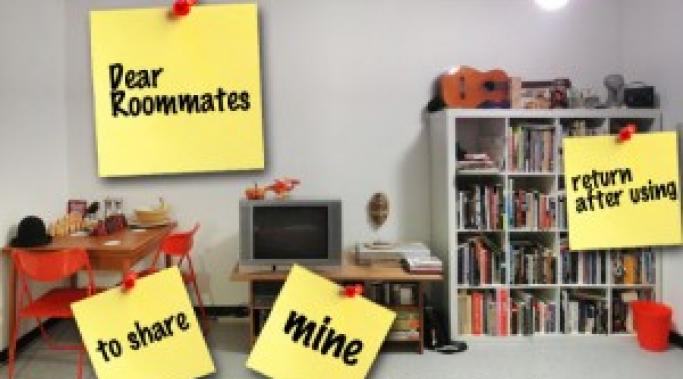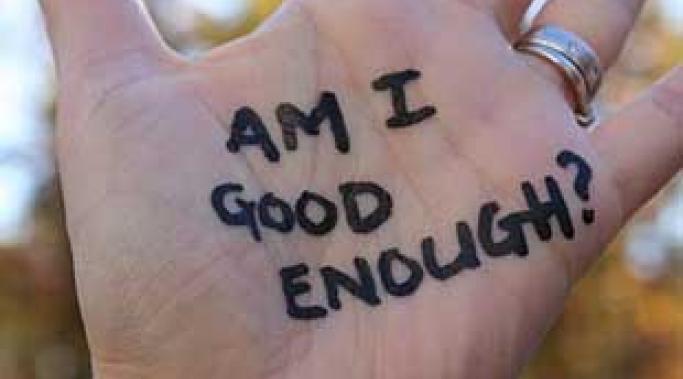Blogs
Poverty Mindset
Poverty mindset is a term that comes up from time-to-time as a root cause of inner-city violence, lower standardized test scores, lower IQ and many other maladies. Can poverty in childhood also lead to changes in adult cognitive abilities?
Before I start talking about how having Adult ADHD can affect being a roommate, I want to say I hope you all have a really great week this week. Mondays can be super hard - you've just gotten over the fact that yesterday was Sunday (maybe you had the ADHD Weekend Blues even) and now you have to start a whole week or school and/or work (my apologies to those of you I am leaving out of this by saying that - those of you who don't work the "typical" workweek). Anyway, have a great week ... now, roommate talk.
Social anxiety can be a miserable experience. Symptoms range from mild to extreme, but regardless of the degree of severity, the feeling it creates is miserable. When we're plagued by a fear of being judged, and not just judged but judged negatively, it's hard to relax and enjoy interactions with others.
Birthdays don't have to be depressing, do they? I celebrated my 49th birthday this past week and while I enjoyed a plethora of happy birthday wishes, I also dealt with an unexpected drop in my mood. It may be perfectly normal to be introspective around your birthday, to examine your life and consider your future options, but when those thoughts become repetitive and persistent, that's when you have to do something to break the cycle. (Depression Fuels Itself Through Negative Thoughts)
Denial in abusive relationships is a coping skill abuse victims tend to overuse. I took a trip to Egypt to understand denial during my abusive relationship. You would think that now, after leaving my abuser, I would be on guard for the mighty river. And you would be wrong.
Boy oh boy. Have I ever made some mistakes after leaving my abusive husband. I know that from a distance it looks like I've got my stuff together. I mean, I write this blog and give tips on how to heal from abuse and have a really good grip on the dynamics of abuse.
You would think I'd be off making new kinds of mistakes, having new kinds of adventures and leaving Egypt and it's river to tend to themselves. Ha! Double ha! Oh no - now I'm really laughing at myself . . . hold on a second while I remember what I was talking about . . .
For all of you radio-listeners out there, you have probably heard the song “Monsters” by Rihanna and Eminem being overplayed on the radio. For many people, the popularity of a song dissolves after hearing it numerous times a day for weeks on end. However, over the last week, I haven’t been able to get enough of the song.
Why, you ask?
The song’s lyrics seem to be directed towards those struggling with self-harm and mental illness.
Do you hover over your spouse while they’re doing housework or completing other important tasks around the house? Do you take more than your share of responsibility for things in your ADHD relationship? Do you find it is just easier to get things done if you micro-manage your partner’s schedule or better yet, do it yourself? Have you tried nagging, pleading even anger to try and motivate your partner to get things done. If so, you may be a helicopter partner!
Eating Disorders and Medical Conditions
At the beginning of the year, I wrote about how eating disorders will often come along with other psychiatric disorders and how important it is to stay on top of both of them for your recovery. However, some of the complications in eating disorder recovery can also come from medical concerns. (Eating Disorder Health Problems and Complications) Plenty of diseases have dietary implications and if you're not ready to tackle both, either your physical health or your recovery will suffer.
The range of medical issues we're talking about here is vast. Sometimes it's an intolerance to something and sometimes it is something more serious, like diabetes or another endocrine disorder or a severe food allergy. Regardless, it can make eating disorder recovery a little more complicated. As if it weren't complicated enough, right?
If you or someone you know has post-traumatic stress disorder, the current time of year might be particularly challenging. The northern hemisphere is well into autumn, and the extensive holiday season is upon us. Celebrations abound in religious and secular communities alike. Beginning in October and extending through December and even into January, many countries and traditions celebrate special things with gatherings, gifts, food, and fun.
Do you suffer from thoughts that keep you from feeling happy? High expectations and impossible standards? Learn how to get rid of perfectionism and be happy.









